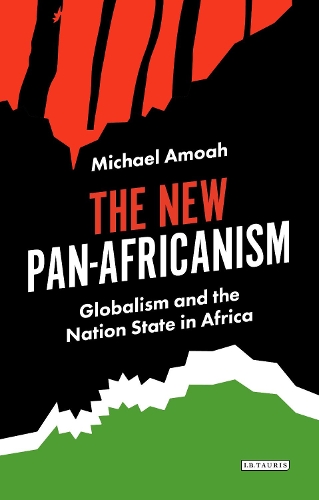
The New Pan-Africanism: Globalism and the Nation State in Africa
(Paperback)
Publishing Details
The New Pan-Africanism: Globalism and the Nation State in Africa
By (Author) Michael Amoah
Bloomsbury Publishing PLC
I.B. Tauris
31st January 2019
United Kingdom
Classifications
Tertiary Education
Non Fiction
320.54096
Physical Properties
Paperback
328
Width 138mm, Height 216mm, Spine 20mm
420g
Description
Nationalism and the nation state, globalization and Pan-Africanism are leading international relations concepts which have a particular relevance for Africa as an emerging economic power. This book examines the concept of nationalism, the nationalist mind-set or psychology of nationalism and the role of the nation state in an era of globalism and globalization. The new Pan-Africanism is a growing force, spurred by economic growth and Africas rising global significance and recent years have seen the establishment of the African Continental Free Trade Area. Michael Amoah here investigates concepts of nationalism and the nation state through case studies of eight countries and discusses the impact of globalism in African states where Pan-Africanism is an increasingly significant factor in both domestic politics and international relations.
Reviews
It should no longer be standard practice for sitting heads of government to extend their stay in power without the AU's intervention. How and when this governance problem can be resolved is perhaps the most pressing issue for the African continent. But the book demonstrates that an important start has been made. Amoah has written an important book pointing out that an ethical imperative is necessary in this context as well as practical ideas. * African Studies Quarterly *
Michael Amoah takes a dispassionate look at approaches to political problems adopted by African states, under the auspices of the African Union. His discussion of what he calls the new pan-Africanism emphasises its pragmatic qualities - romantic notions of the first generation of African leaders have been largely set aside. He is particularly interested on how notions of the nation state relate to institutions of global governance, and the ways which sitting heads of state manipulate constitutions to remain in power. Where international pressures are applied by other African states, they are limited in scope, and are likely to be compromised by the fact that the heads of state of the countries involved are also doing all they can not to be removed from office. Amoahs clearly written book is a good antidote for overblown claims about the emergence of African developmental states or a continent-wide renaissance. It is a timely and sobering read. * Tim Allen, Professor of Development Anthropology, London School of Economics *
The book sets a scene for an important discussion on a much needed alteration of political infrastructure of the African continent. * Thembisa Fakude, Al Jazeera Center for Studies *
Author Bio
Michael Amoah is a Visiting Fellow at the Firoz Lalji Centre for Africa, Institute of Global Affairs, The London School of Economics and Political Science. He is the author of Nationalism, Globalization and Africa; A Decade of Ghana and Reconstructing the Nation in Africa (I.B.Tauris).
